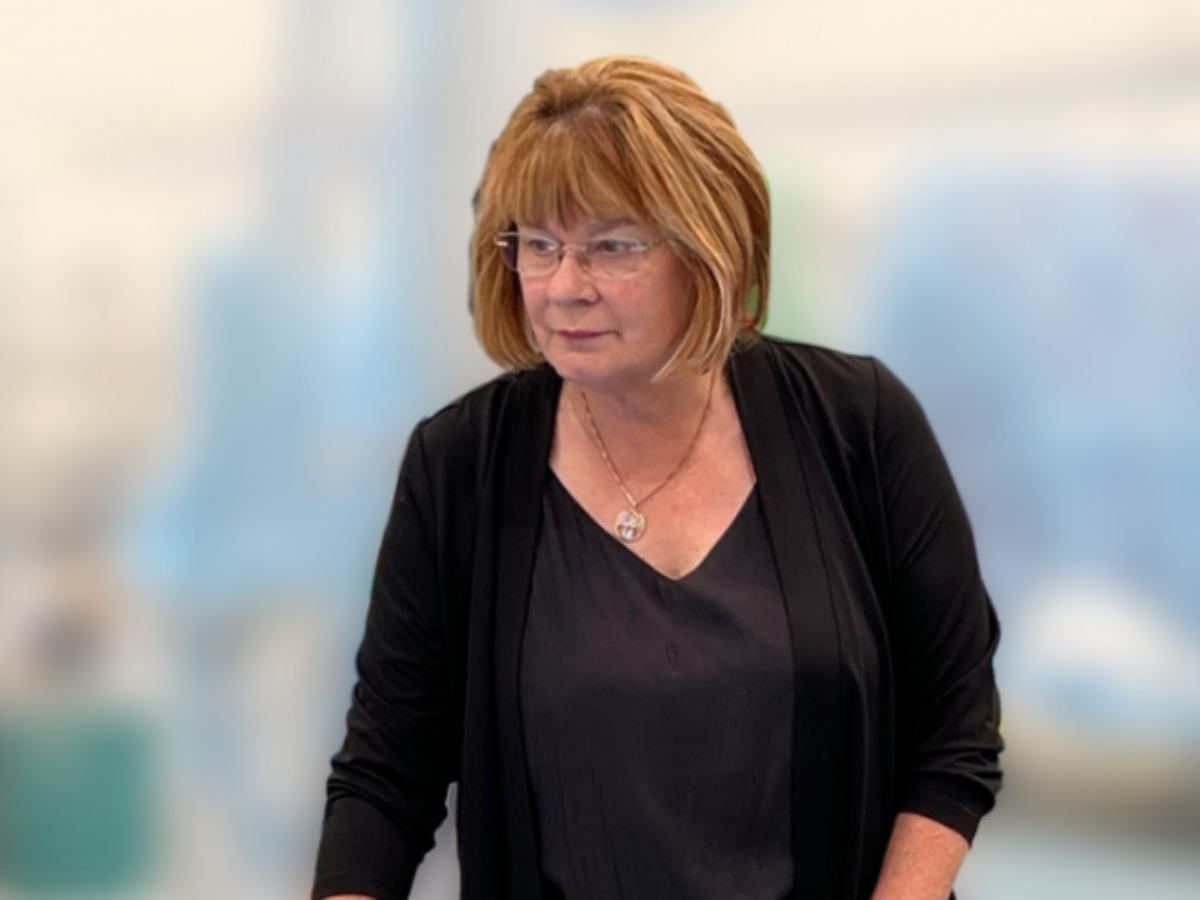Woman leaders in composites – Krystyna Nikolas

Today our special editorial series celebrating International Women’s Week profiling women leaders in composites, turns to Krystyna Nikolas, Financial Controller, Marky Industries. From hand laminating, polishing plugs, grinding and trimming, there are few jobs that Krystyna hasn’t done in the company’s journey from a $50 start-up to employing over 70 people. By Kerryn Caulfield.
Krystyna Nikolas can still tie a ‘truckies’ knot’ which she describes as a useful knot for tying down and securing a load.
Nikolas said: “A truckies’ knot can be tightened easily without much strength using secure tie points on both sides of the load.
“You can pull it tight by pulling sideways while preventing the tail end from slipping through the loop.”
It’s a job she did many times in the early years of the manufacturing business, Marky Industries that she co-founded with her husband Martin in 1978 while they were both still teenagers.
From hand laminating, polishing plugs, grinding and trimming, there are few jobs that Nikolas said: hasn’t done in the company’s journey from a $50 start-up to employing over 70 people manufacturing products for the mining, transport, construction, chemical, defence, recreational and building industries.
“I often walk through the factory and notice things. The young ones look at me quizzically not realising that my understanding of what they are doing is first hand and that I’ve actually done their job at some point.”
As a child born of parents who migrated from post war Poland to seek work and a better life, Krystyna is justifiably proud of Marky’s employment record.
“I take pride in knowing that we have provided employment for people for the years we’ve been in business, some of whom have been with us for over 25 years.”
As a frontier industry in the 1970s and 80s, the composites industry – or fibreglass industry as it was known – was on a collective learning curve.
Nikolas said one of their early insights was that safety comes before productivity. Workplace health and safety became an early core organisational value, so too human resources – both of which require considerable resources to monitor legislation and ensure compliance.
In her opinion, success and longevity in manufacturing rely on effective cash flow management and developing strategies for surviving the lean times.
At the heart of it all is an efficient production system, with minimal waste, interruptions or unnecessary actions.
Nikolas said: “The economic viability of every process and all material inputs needs to be constantly tested.
“In recent years, we’ve aggressively adapted and finessed silicone vacuum bag technology which is achieving considerable production cost savings and efficiencies for the company.
“It is cleaner, reduces waste, has minimal exposure to VOCs, and can mould a part in six minutes.”
Two years ago, the team at Marky transitioned its entire production system from LRTM (Light Resin Transfer Moulding) to reusable silicone vacuum technology to produce the company's award winning fully fitted sleeper cab for client truck production lines.
Another product where the reusable silicone bag system has proved itself is the iconic swimming starting blocks that Marky manufactures for the export market.
Marky’s transport customers include Mack Trucks, Volvo, Iveco, Ford, Western Star and Navistar branded trucks.
The company’s production output also includes over 4,000 components for trains in the Perth Urban Rail System including cosmetic internal panels, as well as train driver dashboards and whole cab fronts for Queensland Rail – all made of fire-retardant resins and specialised composite materials to ensure compliance with ballistic and high impact requirements.
Marky Industries also manufactures composite components for mobile, elevated work platforms (EWP) used on construction sites, in building maintenance and for utility services.
Commonly known as cherry picker arms, the platforms require specialised materials and manufacturing procedures, and electrical testing to achieve the weight, strength and safety performance that make this an exceptional product in its market.
According to Nikolas, striving for excellence through quality certifications helps to entrench a quality culture.
After close to 45 years of managing the company with her husband, Krystyna Nikolas still wakes up with her senses tuned to the weather conditions.
Instinct kicks in and her first thoughts are about the effect on productivity conditions and, if need be, she’ll be available to tie another ‘truckie’s knot’!
Pictures: Composites Australia/Krystyna Nikolas, Financial Controller, Marky Industries
To celebrate International Women’s Week @AuManufacturing and industry body Composites Australia are presenting a special series of profiles of women leaders in composites. The series is written by Kerryn Caulfield, Executive Director, Composites Australia.
Subscribe to our free @AuManufacturing newsletter here.
Topics Manufacturing News
@aumanufacturing Sections
Analysis and Commentary Awards casino reviews Defence Gambling Manufacturing News Online Casino Podcast Technology Videos





